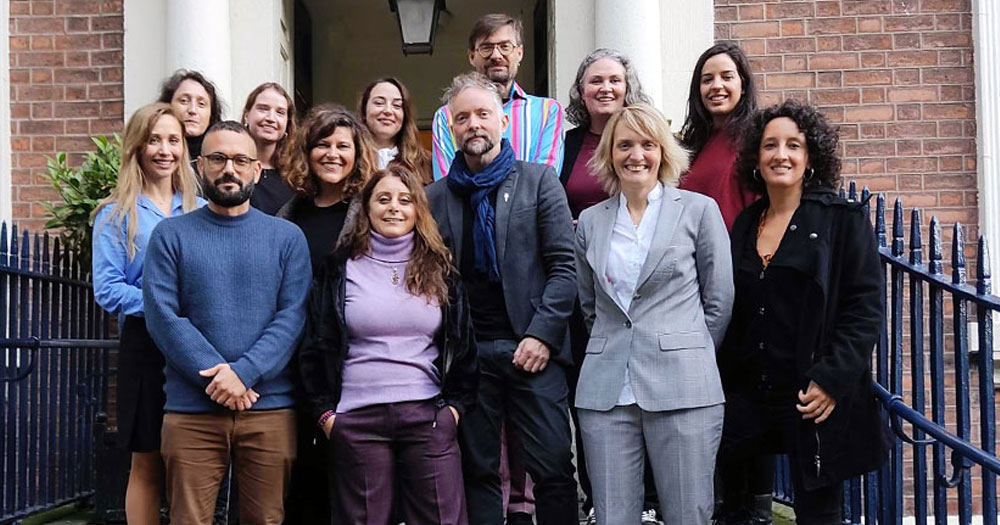On Thursday, October 20, a new research project titled RESIST launched at the Royal Irish Academy. The study aims to investigate so-called ‘anti-gender’ politics, namely the politics and movements that seek to limit women’s and LGBTQ+ rights, Trans inclusion and multiculturalism.
The RESIST study is co-ordinated by University College Dublin in collaboration with partner universities from other European countries and it will run for four years. With over €4 million of funding from the European Union and the UK and Swiss governments, it will explore how anti-gender politics endanger gender and sexual diversity and equality in the European continent.
“This is a big moment for our consortium’s effort to contest these so-called ‘anti-gender’ politics,” said Professor Kath Browne, project leader at University College Dublin. “The RESIST project will explore the consequences these political developments have on lived experiences, freedom of speech, academic freedom, reproductive justice, and gender and sexual diversity in Europe.”
The project will engage grassroots collectives and organisations from Ireland, Spain, Belarus, France, Switzerland, Poland, Germany and Greece. Participants will employ an intersectional approach to analyse how anti-gender politics are developing not only in Southern and Eastern European countries, where the current discussion on the topic is mostly focused, but also in Western European states like Ireland.
We're at the launch event of the Resist project, which addresses the "anti-gender" politics across Europe.@ucddublin @MaynoothUni pic.twitter.com/gpv7DNh65I
— Gay Community News (@GCNmag) October 20, 2022
Anti-gender politics are indeed an issue even within Irish borders, as a study published earlier in August highlighted how a considerable part of the Irish far-right extremist scene of the last few years is made up of organisations with ties to the wider international anti-gender movement.
As explained by members of the RESIST project, such movements “span the political spectrum and are apparent not only in illiberal and authoritarian regimes but also in democracies considered liberal and inclusive.
“It is therefore important that we understand how these manifest—and also how they are resisted.”
SPONSORED CONTENT
Social scientist Roberto Kulpa from Edinburgh Napier University, who is the co-investigator leading the RESIST project communications, explained their methodological approach saying: ”The RESIST project will map how ‘anti-gender’ politics are expressed, listen to those affected by it, collaborate with organisations countering ‘anti-gender’ politics, generate key understandings and tools, and share these with diverse stakeholders and social groups.”
Other universities that will work on this project are: Edinburgh Napier University, European University Viadrina, Université Paris 1 Panthéon-Sorbonne, Lucerne University of Applied Sciences and Arts, Université de Lausanne, Université de Fribourg, Maynooth University, Universitat Pompeu Fabra, and Feminist Autonomous Centre for research.
Find more information about the study here.
© 2022 GCN (Gay Community News). All rights reserved.
Support GCN
GCN is a free, vital resource for Ireland’s LGBTQ+ community since 1988.
GCN is a trading name of National LGBT Federation CLG, a registered charity - Charity Number: 20034580.
GCN relies on the generous support of the community and allies to sustain the crucial work that we do. Producing GCN is costly, and, in an industry which has been hugely impacted by rising costs, we need your support to help sustain and grow this vital resource.
Supporting GCN for as little as €1.99 per month will help us continue our work as Ireland’s free, independent LGBTQ+ media.
